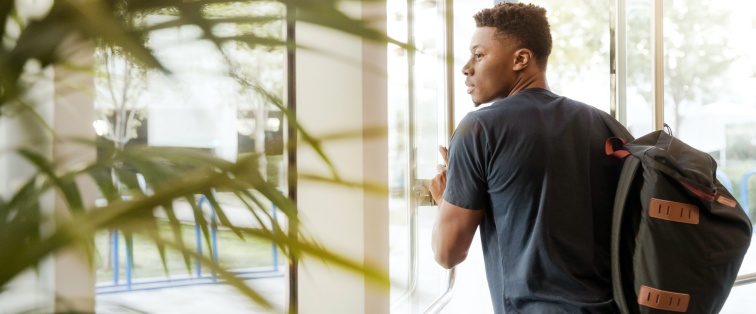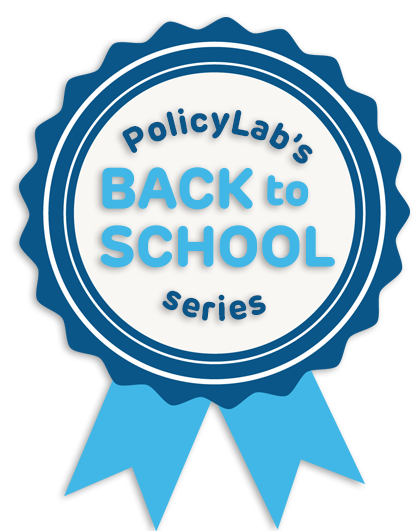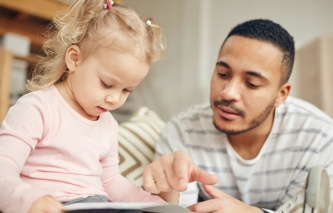New Challenges Await College Students Ahead of an Uncertain Academic Year. How Can We Support Them?

Editor's Note: This post is part of this year’s “Back to School” series in which our experts discuss the need to support the health and well-being of youth as they return to school, while also recognizing the unique challenges presented by COVID-19. Amid this landscape, PolicyLab also recently released Guidance for In-person Education in K-12 Educational Settings, offering recommendations for how schools and families might navigate the upcoming school year. For more, follow our hashtag #PolicyLabGoesBacktoSchool on Twitter.
A new academic year approaches, and as mental health providers who predominantly work with adolescents, we reflected on how college  students and young adults are adjusting in 2021 after a longer than expected COVID-19 pandemic and related restrictions. For many emerging adults, the concerns we discussed in a blog post last year are still very relevant. But through our clinical experience working with these youth, we recognize that there are additional issues to address when education leaders and families are considering how to support their mental health needs at this stage of the pandemic.
students and young adults are adjusting in 2021 after a longer than expected COVID-19 pandemic and related restrictions. For many emerging adults, the concerns we discussed in a blog post last year are still very relevant. But through our clinical experience working with these youth, we recognize that there are additional issues to address when education leaders and families are considering how to support their mental health needs at this stage of the pandemic.
For students who planned to attend college in fall 2020, this past year may not have gone as expected and they and their families may have resorted to alternative plans. College enrollment declined among 2020 high school graduates and this decline was steeper for historically black colleges and universities, minority-serving institutions, and tribal colleges and universities. Additionally, with many schools pivoting to virtual learning, some students chose to take a gap year because they wanted the traditional college experience that includes living on campus. Other students altered plans because of financial necessity. More than one-fifth of high school graduates changed their first choice of school to reduce financial burden. Finally, some struggled to remain enrolled in school due to a family member’s job loss or reduction in work hours resulting from the pandemic. These changes in plans may have led to a range of negative feelings such as regret, sadness and uncertainty.
College students also had to adapt last year to new ways of learning that included socially distanced in-person classes, virtual instruction or hybrid learning. For some, it was difficult to remain engaged in online classes, while others thought the courses allowed them to have more flexibility in their schedule and more control over their pace of learning. For students living at home, some were unable to create a private uninterrupted space conducive for learning and others felt burdened with caregiving responsibilities for grandparents or younger siblings. Now these individuals are planning to return to mostly in-person classes and society expects that they will adjust to “school as normal.” But students may have anxiety about returning to normal, academic demands and socializing with peers especially if they had limited social interactions over the last year.
The impact of the pandemic and its social restrictions on college students’ mental health has been well documented. The stress of navigating virtual learning, social distancing from peers, and financial concerns have all undermined the mental health of students, and students with existing mental health problems experienced a worsening in symptoms. It’s also important to note that many students in need of mental health support do not receive mental health treatment.
As the 2021-22 school year begins, we’re providing recommendations for school administrators, faculty and families to help students with these transitions:
- Encourage students to seek help. Mental health, academic and financial supports at colleges and universities should be easily identifiable before students arrive on campus. Students and families should be encouraged to contact these services and access them early. Since students are transitioning to adulthood, this is a good time to frame seeking help as an adult behavior to motivate them to connect with mental health and other supports as needed. For instance, it’s important to remind adolescents that being an adult means doing things independently and knowing when you need to ask others for help.
- Prepare new supports for transitioning to in-person learning. Colleges can assist students in identifying how best they learn and ways to adjust to the different types of teaching they may encounter this academic year. Students should be encouraged to get to know their professors and thoughtfully consider how they create their schedules. Small things like having to factor in walking to class and attending in-person meetings takes away from the surplus of time with virtual learning; there may be less time to study or take breaks.
- Train faculty and staff to know when and how to help students. School administrators cannot expect faculty and staff to know how to support these vulnerable students without additional resources. Faculty will need training and supports for identifying when students could be struggling with mental health concerns and how to connect them to the proper supports.
- Provide opportunities for peer socialization. Engaging with peers will be important for students in managing their mental health. Administrators and student activity committees should encourage and provide opportunities for students to safely socialize with peers. Also, mental health education among students could help them identify and support their peers in seeking help for mental health issues.
- Use technology to facilitate seeking help. Most young adults use the internet and social media as their primary mode of communication and, at times, a way to seek help. Crisis texting—a free, confidential service that provides mental health help via text—is just one example of a resource used by young adults. Some students may prefer to use technology as a first step in reaching out for help, so colleges and universities should be ready to recommend safe, reputable sites to students to learn about mental health and or seek help.
We don’t know what this year will bring for students, and we expect there to be more challenges as the pandemic shifts what the college and university experience looks like. That means students will be even more vulnerable to mental health concerns and clinicians, school administrators and faculty, parents and families should all stay vigilant and responsive to meet their needs.
Stacey Julye, PhD, LCSW, is a licensed clinical social worker in the Department of Child and Adolescent Psychiatry and Behavioral Sciences at Children’s Hospital of Philadelphia.
Acknowledgement: We would like to thank Fatma Omar, a third year student at the University of Pennsylvania participating in a summer research internship under the supervision of Dr. Boyd, for her input on the content of this post.
